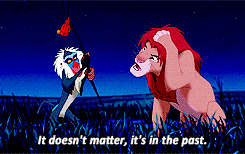I have a question about UDP. For context, I'm working on a real-time action game.
I've read quite a bit about the differences between UDP and TCP and I feel I understand them quite well, but there's one piece that has never felt correct, and that's reliability, and specifically acknowledgements. I understand that UDP offers no reliability by default (i.e. packets can be dropped or arrive out of order). When some reliability is required, the solution I've seen (which makes sense conceptually) is to use acknowledgements (i.e. the server sends a packet to the client, and when the client receives that message, it sends back an acknowledgement to the server).
What happens when the acknowledgement is dropped?
In the example above (one server sending a packet to one client), the server handles potential packet loss by re-sending packets every frame until acknowledgements are received for those packets. You could still run into issues of bandwidth or out-of-order messages, but purely from a packet-loss perspective, the server is covered.
However, if the client sends an acknowledgement that never arrives, the server would have no choice but to eventually stop sending that message, which could break the game if the information contained in that packet was required. You could take a similar approach to the server (i.e. keep sending acknowledgements until you receive an ack for the ack?), but that approach would have you looping back and forth forever (since you'd need an ack for the ack for the ack and so on).
I feel my basic logic is correct here, which leaves me with two options.
- Send a single acknowledgment packet and hope for the best.
- Send a handful of acknowledgment packets (maybe 3-4) and hope for the best, assuming that not all of them will be dropped.
Is there an answer to this problem? Am I fundamentally misunderstanding something? Is there some guarantee of using UDP I'm not aware of? I feel hesitant to move forward with too much networking code until I feel comfortable that my logic is sound.

